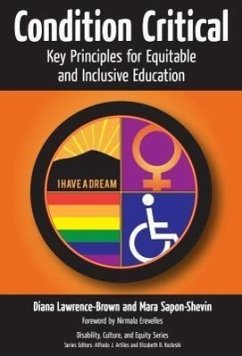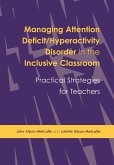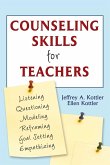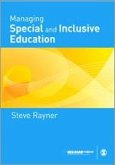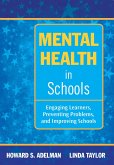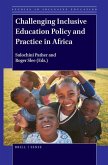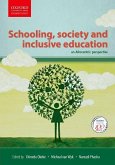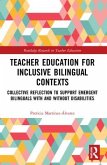This important book provides a unique merging of disability studies, critical multiculturalism, and social justice advocacy to develop both the knowledge base and the essential insights for understanding and implementingfully inclusive education. Although inclusion is often viewed in schools as primarily serving students with disabilities, this volume expands the definition to include students with a broad range of traditionally marginalized differences (including but not limited to disabilities, cultural/linguistic/racial background, gender, sexual orientation, religion, and class). Chapters provide 12 key principles important to developing and applying a critical perspective toward educating diverse students and promoting equity and inclusion.
Hinweis: Dieser Artikel kann nur an eine deutsche Lieferadresse ausgeliefert werden.
Hinweis: Dieser Artikel kann nur an eine deutsche Lieferadresse ausgeliefert werden.

